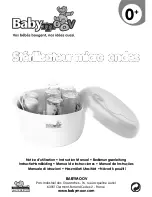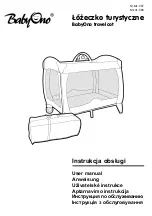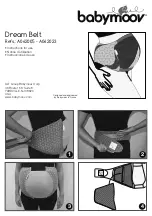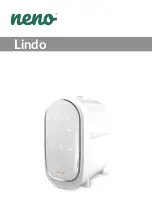
9. Battery Operation Instruction
9.1 Charge and discharge
9.1.1 Charging current
:
Do not surpass the largest charging current that specification stipulated
.
9.1.2 Charging voltage
:
Do not surpass the highest limited voltage that specification stipulated.
9.1.3 Charging temperature
:
within temperature scope that specification stipulated
.
9.1.4 Charge with constant current, then with the constant voltage, no reverse charge, which is dangerous.
9.1.5 Special note:
Short time doesn't affect the use of the battery overcharge too, but for a long period of time over
discharge or over charge can affect the function of the battery failure, or the battery can't use permanent,
appear serious safety hazards, need long time floating please use the recommended floating model
specification. Battery when not in use for a long time, because of its own self-discharge characteristics
can also cause discharge, to prevent the occurrence of a discharge, battery should maintain a certain
capacity, maintain the voltage at 50% state of SOC.
10. Other Chemical Reaction
Because batteries utilize a chemical reaction, battery performance will deteriorate over time even if stored for a
long period of time without being used. In addition, if the various usage conditions such as charge, discharge,
ambient temperature, etc. are not maintained within the specified ranges, the life expectancy of the battery may
be shortened or the device in which the battery is used may be damaged by electrolyte leakage. If the discharge
time is much shorter than the normal after full charged, even battery is charged correctly, and this may indicate it is
time to change the battery.
UE-12Li300BL
06
























